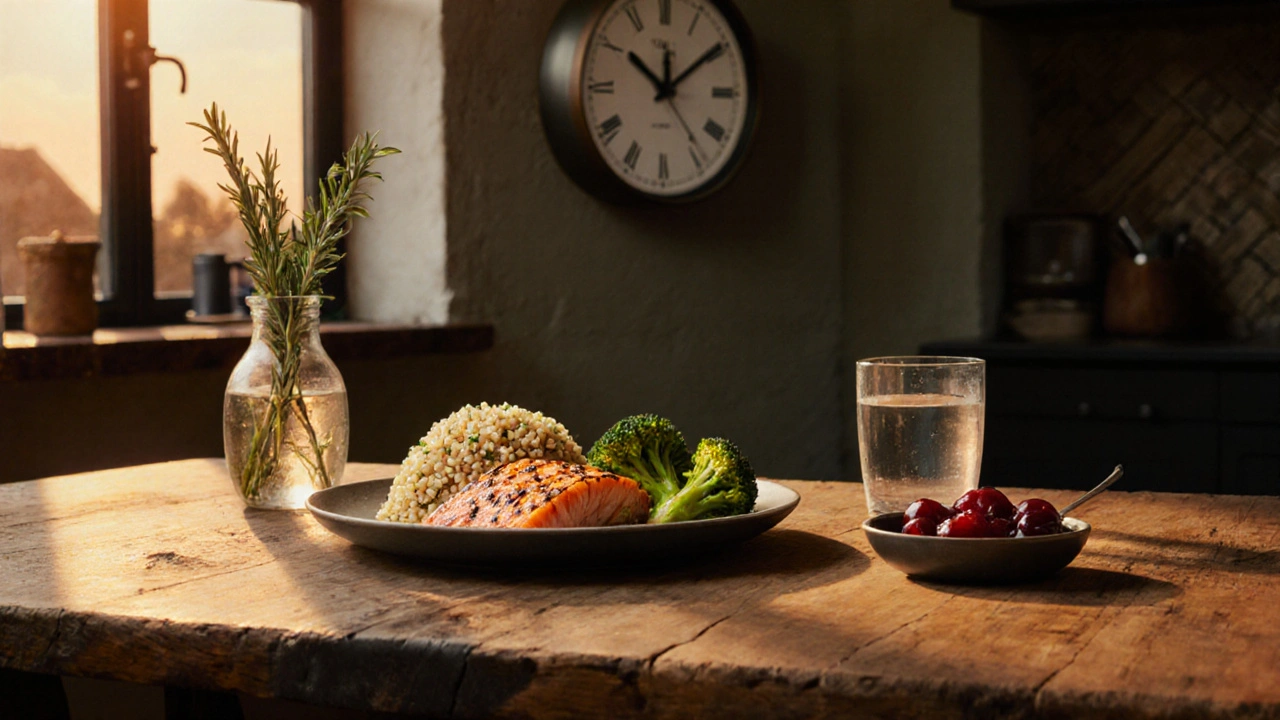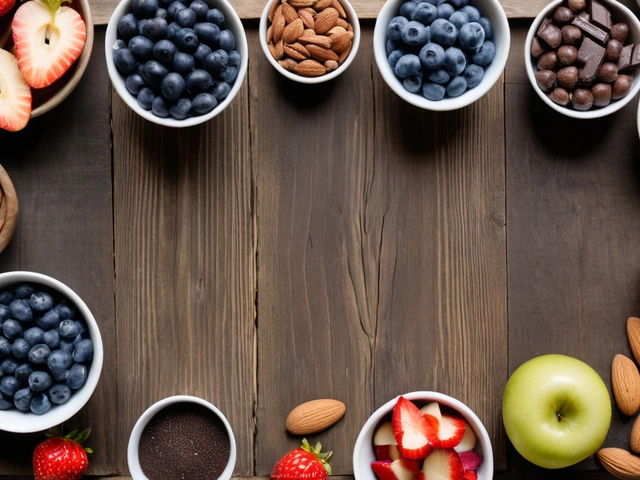Sleep-Friendly Meal Planner
Select meals and snacks that support better sleep:
Evening Meal Options
Snacks to Avoid
Healthy Diet is a dietary pattern rich in whole foods, balanced macronutrients, and essential micronutrients that supports overall health. When it comes to catching quality Z‑zzzs, what lands on your plate can be just as crucial as the pillow you sleep on. In fact, research from the Sleep Medicine Society shows that people who follow nutrient‑dense diets report 30% fewer awakenings and fall asleep faster. This article shows exactly how tweaking what you eat can turn sleepless tossing into refreshing rest.
Why Nutrition Matters for Sleep
Sleep isn’t a single switch; it’s a cascade of hormonal and neural events. Sleep Quality is a measure of how restorative each sleep cycle is, factoring in duration, depth, and continuity. A healthy diet sleep connection works through three main pathways: hormone production, blood‑sugar stability, and inflammation control.
Melatonin‑Boosting Nutrients
The hormone most people associate with bedtime is melatonin. Melatonin is a pineal gland hormone that signals the body it’s night, helping regulate the circadian rhythm. Certain foods supply the building blocks needed for its synthesis.
- Tryptophan is an essential amino acid that the body converts into serotonin, then melatonin. Turkey, chickpeas, and pumpkin seeds each provide about 250mg per serving.
- Magnesium is a mineral that relaxes muscles and supports melatonin secretion. Leafy greens, almonds, and black beans deliver 80-120mg per cup.
- VitaminD, found in fatty fish and fortified dairy, helps the brain convert tryptophan efficiently.
Pairing a tryptophan‑rich snack with a magnesium source an hour before bed can raise melatonin levels by up to 20% according to a 2023 clinical trial.
Stabilising Blood Sugar with Low Glycemic Foods
Sharp spikes in blood glucose trigger cortisol release, a stress hormone that delays sleep onset. The Glycemic Index is a scale (0‑100) that ranks foods by how quickly they raise blood sugar helps you choose steadier options.
| Meal Type | GI Score | Effect on Sleep Latency |
|---|---|---|
| White toast + jam | 75 | +30min to fall asleep |
| Oatmeal with berries | 55 | Standard (no delay) |
| Quinoa salad with avocado | 45 | ‑10min (falls asleep faster) |
Choosing low‑GI carbs after 6p.m. can shave 10‑15minutes off the time it takes to drift off.
The Caffeine and Alcohol Double‑Edged Sword
Caffeine is a stimulant that blocks adenosine receptors, delaying sleep pressure. Its half‑life ranges from 3-7hours, meaning a latte at 4p.m. can still be active at bedtime. Studies show a 2‑cup increase raises sleep latency by roughly 12minutes.
Alcohol, on the other hand, may help you nod off but fragments REM sleep later in the night. The 2022 National Sleep Foundation report notes that a single standard drink reduces total REM by 15%.
Practical tip: limit caffeine to before 2p.m. and keep alcohol to no more than one drink after 8p.m., paired with a protein‑rich snack to slow absorption.

Gut Microbiome, Inflammation, and Restorative Rest
Emerging research links the Gut Microbiome is a community of trillions of bacteria that influence digestion, immunity, and brain signaling to sleep patterns. A diet rich in prebiotic fibers (artichokes, garlic, bananas) nurtures beneficial strains that produce short‑chain fatty acids, which lower systemic inflammation.
Chronic inflammation raises cytokines like IL‑6, which disrupt the normal rise of melatonin. One 2024 meta‑analysis found that participants who added daily fermented foods (yogurt, kimchi) experienced a 22% reduction in night‑time awakenings.
Putting It All Together: A Sample Evening Meal Plan
- 6:30p.m. - Light dinner: Grilled salmon (omega‑3 source), quinoa (low GI), steamed broccoli (magnesium & fiber).
- 8:00p.m. - Snack: Greek yogurt with pumpkin seeds and a drizzle of honey (tryptophan + magnesium).
- 9:30p.m. - Beverage: Herbal tea (no caffeine) infused with chamomile (relaxant) and a splash of fortified oat milk (vitaminD).
This sequence supplies melatonin‑precursors, avoids blood‑sugar spikes, and keeps stimulants at bay, setting the stage for a full night of deep, REM‑rich sleep.
Quick Checklist for Sleep‑Friendly Eating
- Prioritise whole grains with a GI<55 after 6p.m.
- Include a source of tryptophan and magnesium in your evening snack.
- Avoid caffeine after 2p.m. and limit alcohol to one drink after 8p.m.
- Load up on prebiotic fiber to support a healthy gut microbiome.
- Stay hydrated but finish fluids an hour before bed to prevent nighttime trips to the bathroom.
Related Topics to Explore
While diet is a cornerstone, it works best alongside other sleep‑enhancing habits. Dive deeper into circadian rhythm alignment, sleep hygiene practices, and the role of exercise timing to round out your nightly routine.
Frequently Asked Questions
Can I eat carbs before bed and still sleep well?
Yes, but choose low‑glycemic options like sweet potatoes, quinoa, or whole‑grain toast. These carbs release glucose slowly, preventing the blood‑sugar spikes that can delay sleep.
How much tryptophan do I need for better sleep?
The exact amount isn’t set, but studies suggest 400-500mg of tryptophan spread across dinner and a bedtime snack can boost melatonin production without side effects.
Is it okay to have a cup of tea before sleeping?
A caffeine‑free herbal tea (e.g., chamomile, peppermint) is fine. Avoid blends that contain black or green tea leaves, as they still carry caffeine.
Do fermented foods really help with sleep?
Yes. The probiotics in yogurt, kefir, kimchi, and sauerkraut promote a balanced gut microbiome, which can lower inflammation and support the production of sleep‑related neurotransmitters.
What’s the best time to stop eating before bed?
Aim to finish your last solid food 2-3hours before you plan to sleep. This gives the digestive system time to process the meal and reduces nighttime acidity.






